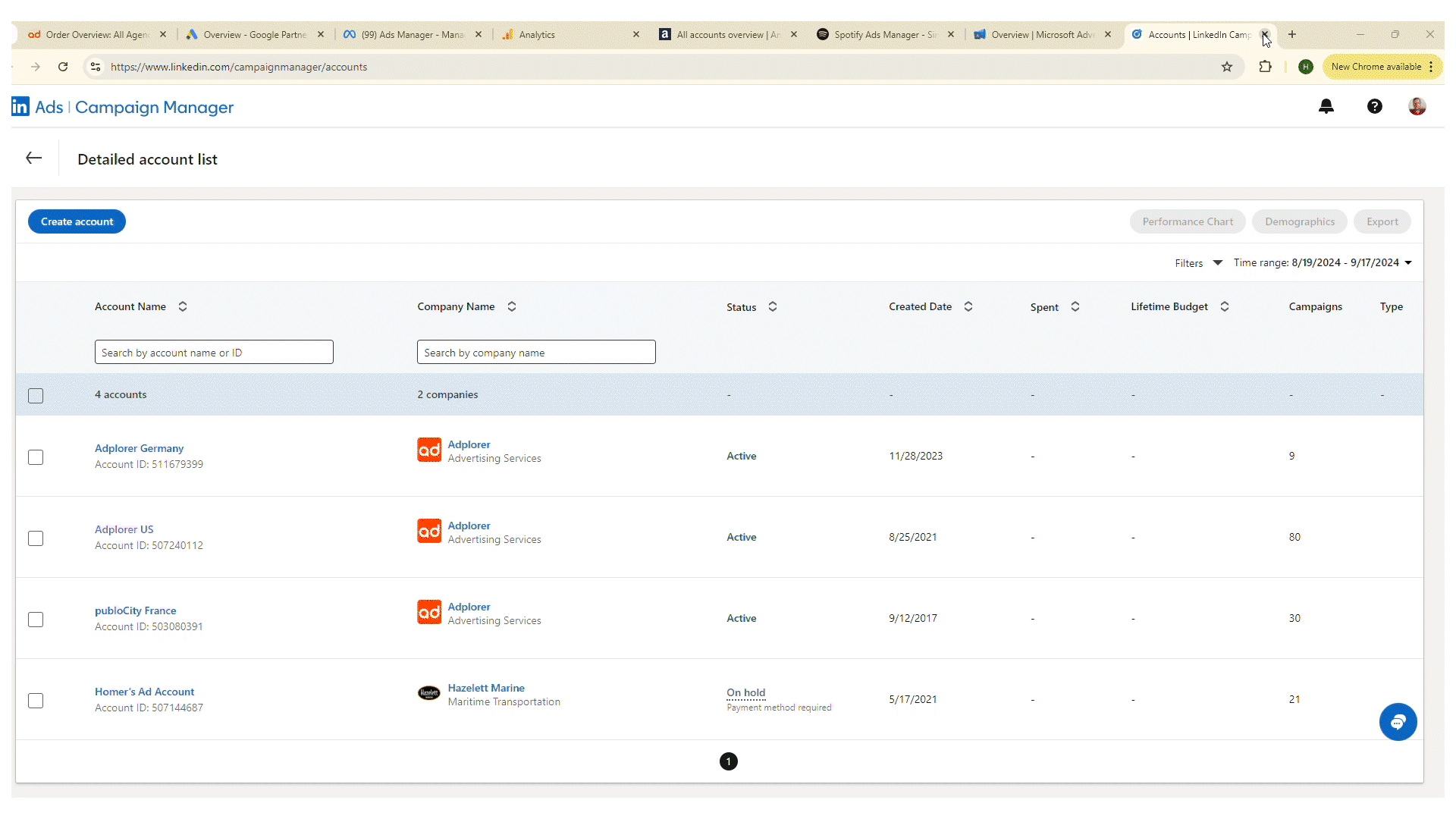In the local marketing industry, especially in the realm of local pay-per-click (PPC) campaigns, attention has become the new oil. Just as oil has powered industries for over a century, attention now fuels the productivity and success of marketing agencies and franchise brand marketing teams. With countless platforms, software tools, and individual accounts to manage, marketing agencies and internal franchise brand teams face a growing challenge: the battle for focus and attention. As the number of PPC campaigns for franchises and local businesses multiplies, PPC managers find themselves forced into an impossible juggling act. This article explores why multi-tasking is inefficient and arguably impossible, how attention plays a critical role in PPC management, and how ppc ad management tools like Adplorer can help optimize that attention to improve both performance and well-being.
The Multi-Tasking Myth: Computers and People Alike
It’s easy to think of multi-tasking as the ultimate productivity hack. Many people pride themselves on the ability to switch between tasks quickly and manage several things simultaneously. However, research and cognitive science have proven that multi-tasking is less effective than it appears. Even computers, designed for speed and efficiency, do not truly multi-task. While it might seem like computers handle numerous programs at once, they actually run them sequentially. The central processing unit (CPU) prioritizes which tasks to handle based on importance and necessity. This form of prioritization ensures that the most critical tasks get the needed resources, while others wait their turn in the queue.
Similarly, PPC managers face a barrage of tasks that need constant prioritization. On any given day, they have to analyze campaigns performance, adjust bidding, adjust budgets, diagnose why a campaign has stopped serving, create new ads, and check in on client expectations—all while using multiple tools and platforms. Whether it’s Google Ads, Facebook Ads Manager, or third-party analytics tools, the list of software they use grows longer by the day. Trying to “multi-task” across all these platforms only leads to mistakes, delays, and the loss of focus, making the day feel overwhelming with underwhelming results.

The Science Behind Why Multi-Tasking Fails
Numerous studies have delved into the topic of multi-tasking and its effects on professionals productivity and mental health. A study conducted by Stanford University found that people who frequently attempt to multi-task perform worse on tests of attention and memory. They struggle more to focus on individual tasks and have a reduced ability to filter out irrelevant information. The constant switching between tasks not only hampers productivity but also takes a toll on mental energy.
Further research from the American Psychological Association (APA) suggests that task-switching—the real activity behind what people call “multi-tasking”—comes with a cognitive cost. The brain takes time to adjust between different tasks, leading to slower reaction times and increased errors. In fact, people can lose up to 40% of their productive time when they are frequently switching between tasks.
In practical terms, this means that PPC managers and marketers working with multiple clients and multiple softwares and platforms are likely losing valuable time when moving between different platforms, accounts, and campaigns. Moreover, the constant need to be on high alert for changes, issues, or client requests adds additional stress and cognitive overload. In this scenario, attention, rather than skill, becomes the limiting factor for how much a PPC manager can accomplish effectively in a day.
The Power of Focus in Marketing Teams
When PPC managers and franchise marketing teams can focus on a single task, they become more effective and efficient. Research published in the journal Psychological Science found that people who focus on one task at a time not only perform better but also experience higher levels of job satisfaction. (Hunter, J. E., Schmidt, F. L., & Jackson, G. B. (1982). The ability to immerse oneself fully in one project or challenge improves the quality of work and reduces stress. For local PPC management, this means that having a streamlined system for overseeing campaigns without needing to jump between multiple platforms can significantly increase ppc manager productivity and happiness.
By managing attention effectively, marketing teams can think critically about their strategies and develop more creative solutions. Instead of just reacting to numbers and data, they can analyze trends, optimize ad performance, and offer better recommendations to clients. Essentially, focus allows them to shift from a reactive to a proactive approach, which is crucial when overseeing numerous local campaigns.
Alerts and Notifications: A Double Edged Sword for Attention Management
To manage an effective alerts and notifications system, it’s important to balance between staying informed and avoiding overwhelming interruptions that can reduce productivity. Research from the University of California, Irvine, highlights that frequent interruptions can take an average of 23 minutes and 15 seconds to regain full focus after each distraction. This means that even well-intended notifications, if too frequent, can fragment a PPC manager’s attention, leading to stress and task-switching inefficiencies.
Psychologists suggest that too many alerts create “alert fatigue,” where users become desensitized to notifications, making it difficult to prioritize what truly matters. A practical approach to managing notifications is to limit them to critical, high-priority tasks, such as significant campaign performance changes or urgent client needs, and customize the alert system to avoid distractions from non-urgent matters. By doing so, you allow for deep work and minimize the cognitive load caused by unnecessary context switching. Adopting these strategies can ensure that attention is used efficiently, improving both task management and well-being in fast-paced PPC environments.
Adplorer: A Solution to the Multi-Tasking Problem
Recognizing the pitfalls of multi-tasking, Adplorer has developed a platform designed to help marketing agencies and franchise brand teams regain control of their attention. By offering an integrated dashboard and alert system, Adplorer consolidates all necessary tools into one centralized platform. This approach helps PPC managers avoid the constant toggling between different programs and accounts. With Adplorer’s unified dashboard, marketers can oversee all their campaigns, view performance data, and receive alerts in one place, dramatically reducing cognitive overload.
Moreover, Adplorer’s alert system ensures that PPC managers only focus on what’s important when it’s important. By sending notifications and updates about critical changes or issues that require immediate attention, the platform helps managers prioritize tasks more effectively. This allows PPC professionals to focus on optimizing performance instead of being sidetracked by less urgent matters or administrative work.

Conclusion: Thriving Through Focus
In the fast-paced world of local PPC and franchise marketing, attention has become a scarce and valuable resource. The overwhelming number of platforms, tools, and tasks threatens to sap PPC managers of their focus and effectiveness. Scientific research has shown that multi-tasking is an inefficient way to work and can harm both performance and job satisfaction.
Tools like Adplorer help alleviate the pressure by providing a centralized dashboard and intelligent alert system that streamline workflow and eliminate the need for constant task-switching. With a ppc ad management tool like Adplorer CEOs and COO’s can improve the working experience of their PPC managers and in turn retain staff longer and better serve their clients. Attention is the new oil, and those who can manage it well will lead the future of local PPC and franchise brand marketing.


